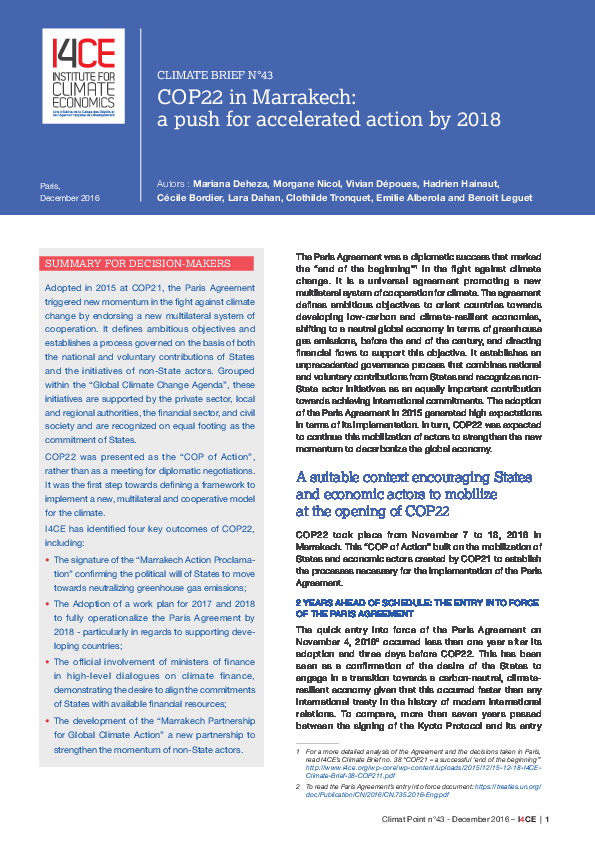COP22 in Marrakech: a push for accelerated action by 2018
Adopted in 2015 at COP21, the Paris Agreement defines ambitious objectives to orient countries towards developing low-carbon and climate-resilient economies, shifting to a carbon-neutral global economy before the end of the century. It establishes a multilateral cooperation framework governed on the basis of both national and voluntary contributions of States and the initiatives of non-State actors. Yet, this new dynamic needs to confirm its robustness and move forward in its implementation. Ensuring the sustainability of the momentum launched in 2015 and advancing in the definition of a common framework of the Agreement were the key challenges of COP22 held in Marrakech in November 2016.
This Climate Brief takes stock of the events leading up to COP22, the major outcomes of the conference itself, and defines the challenges ahead. It highlights that:
- With the early entry into force of the Paris Agreement, international negotiations are entering a less political and more technical cycle.
- A 2018 deadline has been defined, by which the rulebook (for transparency, enhanced ambition, financing, etc.) required for the implementation of the Paris Agreement should be agreed upon;
- The principle of universality and the pillars of cooperation established by the Paris Agreement have endured an uncertain international political environment and brought about significant progress;
- COP22 has carried forward the positive signal from the Paris Agreement on the importance of both State and non-state actors to engage in climate action;
- The level of ambition and the speed of the low-carbon transition remain the main concern. At the time of writing, national contributions will not lead to an emission trajectory that is consistent with the long-term objectives of the Paris Agreement – limiting the increase of temperature well below + 2°C by the end of the century.
COP22 thus extended, without finishing, the chapter opened in Paris in 2015.




